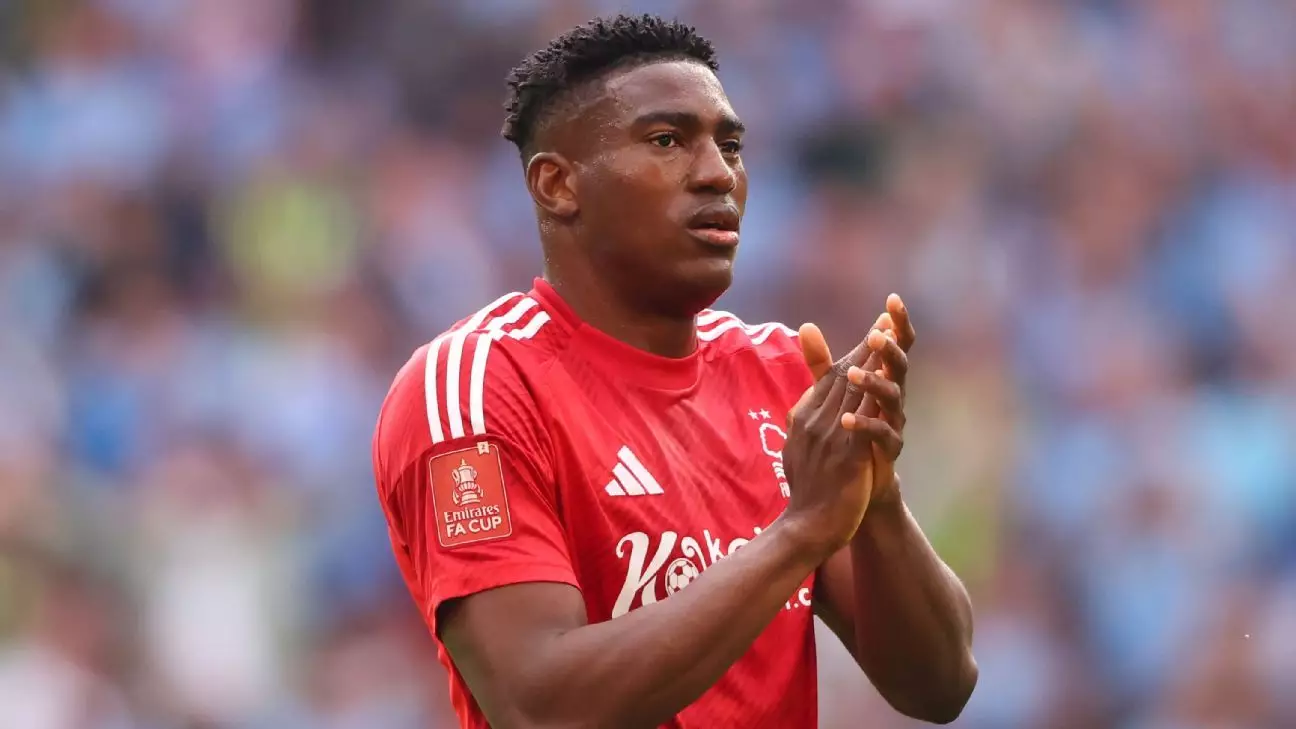In a shocking twist of fate, Nottingham Forest striker Taiwo Awoniyi has been placed in an induced coma following a critical abdominal injury sustained during a match against Leicester City. The gravity of the situation demands not only attention but also a deep reflection on the physical toll that competitive sports inflict upon the players. During the second half of a tense 2-2 draw, Awoniyi collided violently with the goalpost after coming on as a substitute. This incident has ignited both concern for his health and intense scrutiny regarding the club’s medical protocols.
The decision to induce a coma following urgent surgery showcases the severity of Awoniyi’s condition, aimed at aiding his recovery by controlling his movement and heart rate. This escalation highlights the often-overlooked risks athletes face, reminding spectators that what begins as a thrilling contest can swiftly devolve into a fight for health and survival.
A Managerial Conundrum: Communication Breakdowns
What followed Awoniyi’s injury was not just an alarming medical response but also a revealing episode between the management and ownership of Nottingham Forest. Reports indicate that club owner Evangelos Marinakis confronted manager Nuno Espirito Santo in the aftermath, expressing his frustration regarding a lack of clear communication. This clash exemplifies a critical area of concern in sports management—balancing the urgency of on-field decisions with the well-being of players.
After the incident, as Awoniyi struggled on the pitch, the club’s choice to keep him on the field turned disastrous. It was a poor decision likely born out of a desire to maintain competitiveness rather than prioritize his health. This escalation into a mismanaged situation raises vital questions: How should clubs better structure their communication so that an athlete’s health is not compromised for the sake of tactical decisions?
The Owner’s Emotional Investment
As the events unfolded, Marinakis’ reaction portrayed a deep emotional investment in the welfare of his players. His decision to step onto the field was rooted in concern; a display of what genuine leadership looks like during a crisis. The club’s subsequent statement outlined his frustration, emphasizing that it stemmed from a place of “care, responsibility, and emotional investment.”
This sentiment is refreshing in the often cold realm of competitive sports, where financial motivations can overshadow the well-being of players. Marinakis’ instinctual reaction served as a poignant reminder that ownership should be more than just a business venture; it should encompass compassion for the individuals who bring their visions to life on the field.
Playoff Implications and Club Aspirations
Beyond the immediate medical concerns lies the bigger picture—Nottingham Forest’s aspirations for Champions League qualification. With only two matches remaining in the Premier League, Forest finds itself battling to attain a coveted position within the top five. Ironically, Awoniyi’s injury carries significant ramifications for the club’s ambitions. The juxtaposition of an athlete’s personal battle against the backdrop of a team’s quest for success raises ethical dilemmas.
Should teams prioritize their pursuit of glory when the health of individual players hangs in the balance? The answer may lay not only in the scrutiny of decisions made in the heat of competition but also in the proactive measures that clubs must undertake for better health protection and medical preparedness.
In light of this calamity, Nottingham Forest must reevaluate its medical strategy and maintain open lines of communication between management and medical teams. While the road ahead remains fraught with uncertainty for Awoniyi, it beckons a future wherein sports prioritizes health equally as it does victory.
The unfolding situation is a rare intersection of human vulnerability and professional ambition, reminding both fans and clubs that compelling stories are born not just from triumphs, but also from the struggles that accompany them.

